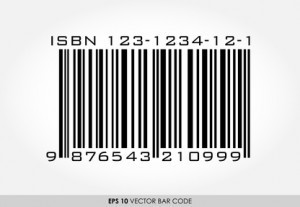What is an International Standard Book Number (ISBN)?
For freely offered writing Resources go to RuthFordElward.com
WHAT IS AN INTERNATIONAL STANDARD BOOK NUMBER (ISBN)?
Writers are faced with a number of challenges when they are trying to create a book, and unfortunately those challenges don’t go away once they finally finish and are getting ready to publish their book.
In the past, it was still a complicated process to get a book published, but now in the digital age there are even more things to take into consideration. This isn’t necessarily negative though, as it does provide authors with different tools to get their books published.
In fact, thanks to sites like Amazon, Smashwords and other self-publishing sites, authors are getting the chance to publish works that might have otherwise never seen the light of day.
Because of the different methods of publishing, authors have to take different steps to get their works out. With digital publishing, one of the biggest things that has changed is having an ISBN.
An ISBN used to be all but mandatory for anyone that wanted to get their book published. Quite simply, an ISBN is a special type of thirteen digit number that identifies a published work.
The number is based upon a couple of different factors, such as the publisher and the title of the book. Different editions of books will get a different number, though reprints will keep the same number. Readers very rarely have to concern themselves with an ISBN as it is primarily used for marketing purchases.
In the digital age, an ISBN seems less important, because of the introduction of online publishing, whether through a site that the author owns, or more likely a site for self-publishing like Amazon or Smashwords. These sites still use a number identification system, but it varies depending on the site. Amazon for example uses an Amazon Standard Identification Number (ASIN), and some sites will just use a Universal Product Code (UPC).
With the growing popularity of publishing online, many authors are wondering if they even need to bother with an ISBN. The biggest concern authors face is the fact that they have to pay for an ISBN. Although the fee is pretty small, it is still understandable that authors wouldn’t want to pay for this if they feel it isn’t necessary.
Whether or not an author needs an ISBN isn’t always the easiest question to answer because it can vary from author to author.
If an author ever intends for their book to be sold in bookstores, then they are going to need to get an ISBN. It is worth noting again though, that authors don’t need to get an ISBN immediately if they know they’re just going to be first selling digitally.
If an author intends to solely sell their works through either their own site or something like Amazon or Smashwords, then they could arguably go without getting an ISBN.
In general, the rule of thumb is that for every ‘different’ format that you will publish; you will need a unique ISBN.
So, if you published an eBook, and later decided to convert it to an audio book and then have a version in print, you would not only need an ISBN for the eBook version but also a separate ISBN for the audio book and another for the print version.
In the future, there is the very real possibility that ISBN’s will be phased out or perhaps merged with another system. Many are arguing that with how many books are being self-published or just sold digitally ISBN’s are becoming dated.
Plenty of books are still sold in physical stores though. Many of the author’s that do initially publish online because of how accessible it is are doing so with the intent of gaining enough online popularity to attract the attention of a publisher, so their books can be sold in stores. So the question remains: To ISBN or Not to ISBN and if so, to ISBN all versions or which version?
Ruth Ford Elward's Blog
- Ruth Ford Elward's profile
- 9 followers



